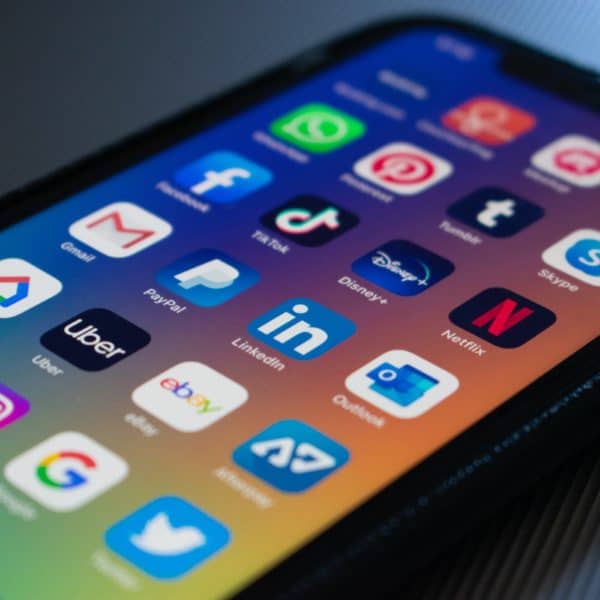What is a 401k? In today's lesson, we'll cover what a 401k is and what age you should open one. Hint: It's sooner than you think!

I get this question quite a bit from friends and readers so I figured it was important to do a post on this topic.
If you're over the age of 20, get a pen and paper because this is for you.
The bottom line is: You need to start a 401k as soon as possible.
I actually have many friends in their 30s who still do not have a 401k, even though their companies give a 401k match!
You guys, this is free money. Let's dive in.
What is a 401k?
First, let's discuss what it is.
I know you've heard of it, but you may have just skimmed over it while looking at your company's benefits because you didn't want additional money taken out of your paycheck.
However, you're doing yourself a huge disservice and actually leaving free money on the table.

A 401k is essentially a retirement account offered by your employer and is an investment in the stock market.
You will choose “positions” when you sign up. These “positions” are often in the form of mutual funds. Mutual funds are a diversified holding of investments.
Essentially, in a 401k, you are choosing where to invest your money.
These positions of mutual funds can be actively managed (this means you pay the brokerage a % fee to manage your portfolio) or passively managed (you manage it and invest in strong positions).
Either way, your money is in the stock market so if the stock market trends upward, which it should over time, your money will also increase. This also means that if something happens (like the Coronavirus pandemic) and the stock market goes down, your 401k account will also go down.
Don't freak out though. It's okay.
Unless you are turning 55 soon and need the money now, you will most likely have this money in your 401k for years and years to come. The market will have the opportunity to correct and your money will go back to where it was and trend higher.
I had a friend once mention to me that her company was taking money out of her 401k during the Coronavirus pandemic. Perplexed, I asked more questions. I figured out that she didn't realize that her 401k is an investment in the stock market and that since the market went down, her 401k investment also went down. Knowledge is power, right?
No need for her to worry. The market will correct. In fact, many positions have already corrected in a short amount of time.
Do You Need a 401k (even if you're in your 20s)?
A 401k is a retirement account, but don't leave just yet. Hear me out. I know what you're thinking. Maybe you're 21 or even 35 and thinking “I don't need to think about retirement. I'm still young.” WRONG!
Sure, retirement may be 30-40 years away, but you need to start saving right NOW in order to set yourself up for a wonderful, financially-free life. You should think about enrolling in a 401k even if you're out of college at 21 years old getting your first job.
I got my first 401k at the age of 21 and in only 10 years, I already have hundreds of thousands just in my 401k. Considering I have many friends in their 30s that haven't even started a 401k, I'd say the extra 10 years really made a huge difference for me.
So how did it grow that much in only 10 years?
Several different ways. I'll break it all down for you and explain how it works.
Other related articles you may enjoy:
- How to Start Investing in Stocks (for TRUE Beginners)
- How to Use the Robinhood App
- Financial Cookbook Easy to Understand Financial Definitions
Ways To Grow Your 401k
1.) Do Not Touch Your 401k
Since a 401k is a retirement account, it is meant to stay in the stock market positions you choose until you retire. This means that generally over time, the value of the positions will increase, hence growing your 401k account.
Do not take money out of your 401k account as you will be penalized with heavy fees if you take it out sooner than the IRS designated retirement age. Right now, in 2020, the IRS designates 55 as the age you can take out your 401k without additional financial penalty.
(Side note: I would never, ever recommend taking any money out of your 401k until you retire, unless it's a true emergency. P.S. buying a car or house is not an emergency and your 401k should not be touched for those things.)
2.) Grow Your Positions
Another way you'll grow your 401k is through market changes in your positions (mutual funds). The positions you selected should increase over time. The average return on the stock market is 12% per year historically. This means that your $1000 investment in your 401k today will be worth $1120 on average the next year.
This will continue to build throughout the years. The best part is that you make compound interest on your investments. Compound interest is essentially interest on interest and it's like music to my ears. For example, the $120 that you'd make in interest in the example above, will now earn interest every year until you take the money out. You'll be making interest on your interest. Therefore, if you start investing at the age of 21, you will have at least 34 years to earn compound interest returns on your investment. This is how your 401k will grow more and more over the years.
3.) Dividends
Some mutual funds may offer dividends. This is when a corporation (or set of corporations) issues a payment to its shareholders. (Side note: You are considered a shareholder if you bought positions of that corporation or mutual fund.)
You always want to reinvest the dividend back into the mutual fund. When you do this, you will then own more shares of the fund without having to invest more of your own money.
The value of the mutual fund will increase over time from the reinvestment of dividends, the interest and from the growing market value of the fund.
Example: Disney's dividend payment is currently $1.76 per year. This means that for every share you own of Disney, they will give you $1.76 each year. (This is a separate payment from the gains of the stock market, which you automatically receive).
4.) Traditional 401k Pre-Tax
There are two types of 401k: Traditional and ROTH.
Traditional 401k is advantageous because the money is not taxed until it's taken out after the age of 55. Therefore, the money that would have gone to taxes is instead earning compound interest in the stock market over the years by being in your 401k. In addition, your taxable income in the current year is less.
Roth 401k is taxed now, but is not taxed when you take out the money later in life.
Both are eligible for company matches and have the same contribution limits. The choice is completely up to you!
5.) Company Matches
This is one of the LARGEST ways your 401k grows over the years! Listen up because this is my favorite one!
A company match is a major benefit that your company may or may not offer. If your company does offer a company match, you should take it and run! This is FREE MONEY and a fantastic (and easy) way to grow your 401k without any additional effort on your part. This one is a no brainer ladies!
Let's dig into company matches in more depth. This is an important topic.
401k Company Matches: What are they?
Long gone are the days of getting a large retirement package after working for a company for 40 years. Very few companies do that anymore. In today's world, most people have multiple income streams and bounce from job to job every couple years. In fact, it's actually recommended that you change jobs or companies every couple years to renegotiate your income (I definitely recommend it!).
Therefore, most companies have moved away from retirement packages. I've worked for five Fortune 100 companies and none of them offer retirement packages anymore. Instead, they offer generous 401k company matches, which can be taken with me when I switch jobs.
A company match is amazing because once it vests, it is yours forever and you can keep that account with you until you retire. [Side Note: Vesting essentially means ownership. It means you now own the investment. Some companies have immediate vesting and others will vest at a certain time frame.] Once it vests, you don't have to work for that company for 30 years to keep that money and can take it with you from job to job.
A company match will be designated by a percentage (usually it's between 2-8%). Let's say it's 4%. This means that for every 4% of your paycheck that you contribute to your 401k, your company will also add 4% of your gross paycheck into your 401k account.
Companies will sometimes have a vesting period. You'll want to find this out just for your own personal knowledge and strategy. Remember, a vesting period means that once you complete the period, that money is yours forever. I've worked for companies that have a 1 year vesting period, immediate vesting periods, or vest in a particular month of the year. This matters because if my company only vests in January, then all the money they matched all year long will only go into my account in January. If I am planning to leave the company in December, it would actually be smartest to do so in January to wait for my company match to come in. (Some states have laws that employees have to be paid the money, but that's an exception, not the rule.)
Either way, if your company offers a 401k match, you'd be silly to not take it! They are giving you free retirement money and it's a HUGE perk of working there! My recommendation is to always contribute AT LEAST the company match, if you can make it work without dipping into your emergency fund. (Side note: Your emergency fund is a savings account that has at least 6 months worth of funds to cover your expenses set aside in case of emergency.)
Example:
Let's say you contribute 4% a month to your 401k, which is equal to $100 a month.
Your company will then also put in $100.
Company matches are a 100% return on investment up to the designated match percentage.
Where else can you get that kind of ROI!?
You must start looking at every financial decision in life with the ROI that comes with your decision.
Why Do We Need a 401k When We're Still Young?
I know we talked about it above, but you're still not convinced? I get this question a lot. “I'm only 21 or 34. Why do I need a 401k if I'm not retiring until I'm 65. I have plenty of time to save.” Let's discuss by doing an example.
Example: Why You Need a 401K Now (even at age 21)
For this example, let's say you are 21 years old and you make $35,000 a year.
In addition, let's say your company offers a 401k company match of 4% (this is very standard).
At $35,000 a year, you make about $2916 per month (gross income).
Since your company matches 4%, you should try to contribute 4% to take full advantage of the free money (if you can without going into your emergency fund). If you can't do the full 4%, contribute what you are comfortable with.
4% of your gross income (before tax income) is $116 per month.
You elect to contribute $116 to your 401k account each month.
Your company is matching your $116 per month.
Therefore, you are really putting $232 in your 401k account each month.
Over 12 months:
$232 per month x 12 months= $2784
After year 1, you'd have $2784 in your 401k account and yet you only contributed $1392. Now, let's have more fun…
On average, the stock market return each year is 12.25% (this varies every year, but that's an average).
Let's keep things simple and say that with the average stock market return, you would now have $3125 ($2784 x 12.25%) just after one year (and yet you only contributed $1392).
Now, in year 2, you have $3125 that is now making the 12.25% return PLUS the $116 you are still putting in each month PLUS the company match.
Do you see how this adds up quickly? Using a compound interest calculator, you can see how quickly this money will add up over time!
What If My Company Doesn't Offer 401k?
That's perfectly normal and okay. You still want to start saving for retirement though.
Therefore, you'll want to open up an IRA account.
You can open an IRA with any brokerage. The one I recommend is linked here. (Free)
Savings Priority Checklist
Now, as you build up your emergency fund and your savings, you can put more and more into your 401k.
Make sure you keep plenty of emergency fund money as well as savings money for things like homes, cars, big purchases, college funds for the kids, etc.
Your 401k is just for you when you retire someday and shouldn't be touched.
Use our savings priority checklist below to keep you on track!
Saving Priorities in Order:
1.) Emergency Fund- 6 Months to pay for rent, utilities, food, phone, etc
2.) Contribute to the full amount of the 401k company match
3.) Save for things you want in life (house, car, kids college)–>Keep this in a savings account or very conservative options in the stock market
4.) Contribute more to 401k each month
5.) Invest heavily in the stock market in riskier positions.
Refer to the above savings priorities in order. Once you've accomplished the first one and have extra savings, go into the next on the list. Once you've accomplished that one and can keep it going, start the next one on the list.
I believe these priorities in order will help you to gain financial freedom the quickest while living the life you dreamed of.
Obtaining financial freedom should never be at the cost of not enjoying your life. I read blogs all the time where the writer is a millionaire, but the way they did it is by having 17 roommates, living with their parents, never going on vacation, and eating top ramen until they are 50.
This is not living and not what I'm suggesting. My goal is to get you to a comfortable place of financial freedom while still living a fabulous life, but making smart decisions.
Vacations, a house, and a running car are what make life more enjoyable and we want to make sure we are living our life instead of letting our finances run our lives.
Yes, You Need a 401K NOW
To summarize, YES, you need a 401k even if you're 21 years old.
It's NEVER too early to start saving for your retirement, especially if your company gives a company match. This is a NO BRAINER!! This is FREE MONEY!!
Trust me. You'll thank me later. =)
I hope this helped answer some of your questions on a 401k. Just a reminder, I'm not a financial advisor so please consult a financial advisor to determine the best positions for your financial situation.
Other related articles you may enjoy:
- How to Start Investing in Stocks (for TRUE Beginners)
- How to Use the Robinhood App
- Financial Cookbook Easy to Understand Financial Definitions




Thanks for your marvelous posting! I seriously enjoyed reading it, you’re a great author.I will be sure to bookmark your blog and will come back in the foreseeable future. I want to encourage yourself to continue your great writing, have a nice morning!
A question that may be obvious for others but I just want to be clear on is: So with an IRA, the monthly contributions that would typically be taken from a paycheck with a 401k, are now being taken from like a linked checking account? Meaning that one would have be conscious of that amount of money that will be withdrawn for the IRA contribution be there in the account every month, correct?
With an IRA, you can either contribute manually (whenever you choose to which is how I do it) or set it up to a bank/checking account for distributions. A 401k has money distributed straight from your paycheck. You may also be able to set up a paycheck to distribute to an IRA, depending on the account. Does that make sense? =)